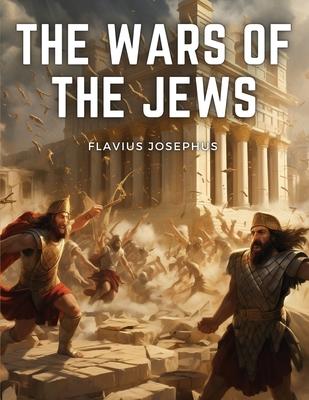"The Wars of the Jews" is a historical work written by the Jewish historian Flavius Josephus in the late 1st century. Also known as "Jewish War" or "De Bello Judaico" in Latin, the book recounts the Jewish revolt against Roman rule, particularly focusing on the events leading to the destruction of the Second Temple in Jerusalem in 70 CE.
Key aspects of the book include:
Historical Context: Josephus provides a detailed account of the First Jewish-Roman War (66-73 CE), offering historical context and a chronological narrative of the events leading up to and during the conflict.
Author's Background: Flavius Josephus was a Jewish general who, after being captured by the Romans, switched allegiances and became a historian and advisor to the Roman emperors. His works, including "The Wars of the Jews," reflect both his firsthand experiences and his perspective as a historian.
Military Campaigns: The narrative delves into the military campaigns and battles that took place during the Jewish revolt. Josephus, having served as a military commander for the Jewish forces before his capture, provides insights into the strategies and tactics employed by both sides.
Siege of Jerusalem: A significant portion of the work is dedicated to the siege of Jerusalem, which culminated in the destruction of the Second Temple. Josephus vividly describes the hardships faced by the inhabitants of the city and the escalating intensity of the conflict.
Roman Perspective: While Josephus was a Jewish historian, his later allegiance to the Romans is evident in his narrative, providing a perspective that aligns with Roman interests. This aspect adds a layer of complexity to the interpretation of the events.
Religious and Cultural Insights: "The Wars of the Jews" also delves into the religious and cultural aspects of the Jewish people during this tumultuous period. Josephus provides context for the motivations of the Jewish rebels and the socio-political dynamics that fueled the conflict.
Historiographical Significance: Josephus' work is a crucial historical source for understanding the Jewish-Roman War and its aftermath. It provides valuable insights into the political, military, and religious dynamics of the time.
Legacy: The book has had a lasting impact on historical scholarship and is considered an essential primary source for the study of the First Jewish-Roman War. Despite the challenges of interpreting Josephus's bias and motivations, his work remains a foundational text for understanding this critical period in Jewish and Roman history.
